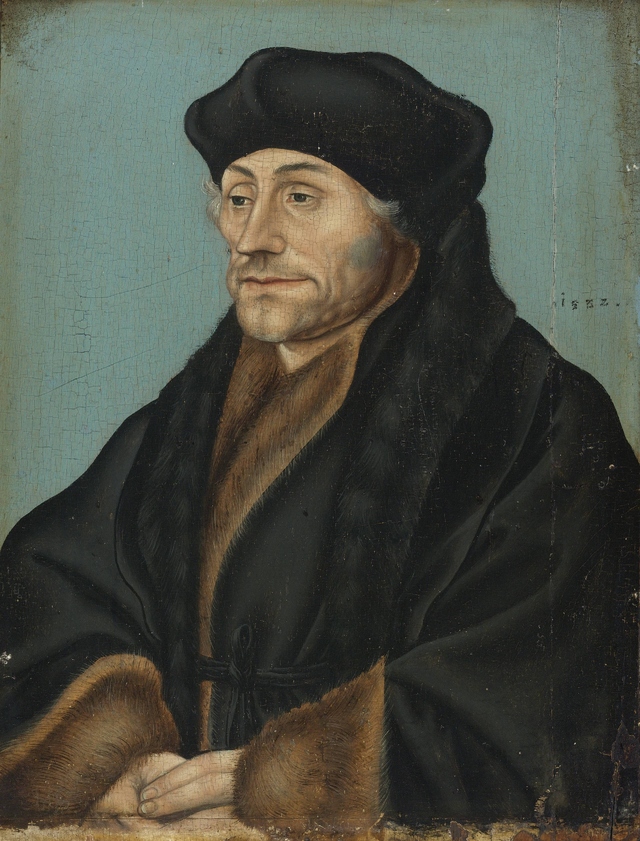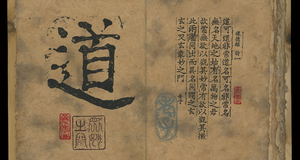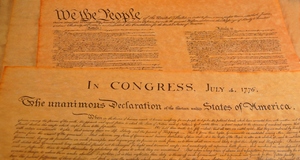Erasmus and the Transformation of Early Modern Political Authority in The Education of a Christian Prince
By
2016, Vol. 8 No. 08 | pg. 1/1 AbstractOften called the “prince of the humanists” Erasmus of Rotterdam (1466-1536) was one of the most influential European philosophers and theologians of the early modern period. However, today he is often overshadowed by his more radical contemporaries, particularly Niccolò Machiavelli, and regarded as a quixotic moderate. This article seeks to challenge this traditional view of Erasmus by exploring the rhetoric and claims of one of his most famous works, The Education of a Christian Prince (1516), a political advice manual written to the future Holy Roman Emperor Charles V. An analysis of the text reveals that, rather than an out of touch idealist, Erasmus had an adept understanding of the pressures shaping political authority in sixteenth century Europe, which he used in the text for his own self interest - to secure a position as the future Emperor’s advisor. In particular, he understood the desire of monarchs to expand their influence at the expense of clerical power, predicting how rulers would use the coming Reformation to their advantage. In the sixteenth century, amidst considerable political and religious instability, opponents of the Reformation often criticized the Dutch Christian humanist Erasmus of Rotterdam with the well-known aphorism that “Erasmus laid the egg which Luther hatched.”1 Yet, his supposed chick Luther wrote scathingly, “I look upon Erasmus as the worst enemy that Christ has had for a thousand years.”2 Erasmus himself sought the middle ground. He distanced himself from Luther on many points of theology and declared in a famous rebuke, “I laid a poultry egg, Luther hatched a very different bird.”3 Nevertheless, he also had great respect for Luther writing to Pope Leo X that Luther was “a mighty trumpet of gospel truth.”4 Erasmus’ principled moderation, while serving as an inspiration to both the Protestant Reformation and Catholic Counter-Reformation, made him a controversial figure among scholars and theologians. However, it also won him the support of secular leadership, including the monarchs of Europe’s increasingly consolidated nation-states. These rulers used Erasmus’ criticisms of the Church, and his general commitment to social orthodoxy, to present monarchy as a source of hegemonic socio-cultural and political authority that transcended Papal influence. This trend is particularly evident in the opening to Erasmus’ speculum principum, a popular genre of political manuals for princes, The Education of a Christian Prince (1516). Dedicated to the sixteen-year-old Hapsburg Prince Charles, the future Holy Roman Emperor Charles V, the manual outlines Erasmus’ vision of an ideal ruler as a Christian philosopher king who controlled all elements of a powerful state. This paper explores the rhetoric and claims of The Education of a Christian Prince as a way to understand Erasmus’ own motivations, philosophy and character. It also uses the text as a reflection of the wider political and social pressures shaping European monarchical authority in the early sixteenth century. Additionally, it challenges and complicates the commonly accepted claim that Erasmus was an idealistic moderate who intended The Education of a Christian Prince primarily as veiled argument against one-man rule, instead arguing that Erasmus in fact sought to promote monarchical authority for personal gain. While the text is an articulation of his political and pedagogical philosophy, it is also the product of self-interest as Erasmus wrote the manual as he tried to secure the profitable position as an adviser and tutor to the future Emperor. Consequently, The Education of a Christian Prince, particularly its introductory Dedicatory Epistle and first chapter, should be understood as both a revealing articulation of how the early modern period transformed political authority by increasing the social and political influence of the monarchy, and a carefully crafted text meant to highlight the importance of advisors and Erasmus’ own credentials. Importantly, this dynamic is immediately notable in Erasmus’ Dedicatory Epistle written directly to Prince Charles. Erasmus promptly begins his guide by reminding Charles of the importance of good advisers, “whenever kings call…council and exclude those basest of advisers — ambition, wrath, cupidity, and flattery — the state flourishes in everyway.”5 He further notes the importance of a Christian education for the prince,
While this epistle is convincing as an articulation of his philosophy on political authority and the state, its intense focus on the importance of advisers, and a Christian education in particular, makes sense as Erasmus, the most celebrated of the Christian humanists, was clearly using the manual to present himself as an ideal counselor. However, Erasmus never directly praises himself. Equally, likely to distance himself from more radical critics of secular authority like his friend Thomas More, Erasmus takes great care to repeatedly celebrate Charles even writing that “I am not unaware that your highness does not need the advice of anyone, and least of all my advice.”7 These points, while articulated most directly in the opening Dedicatory Epistle, would be central to Erasmus’ advice and rhetoric throughout The Education of a Christian Prince. Erasmus quickly returns to these themes in his first chapter The Qualities, And Significance of a Christian Prince, where he presents Charles with his vision of an ideal Christian prince. He begins his advice to the young prince by once again stressing the importance of advisers, “when a prince is to be chosen by election it is not at all appropriate to look to the images of his forefathers…seek rather a nature staid, in no way rash, and not so excitable that there is danger of…developing into a tyrant…casting aside all regard for advisers and counselors.”8 This is remarkably different from his contemporary Niccolò Machiavelli who wrote in The Prince (1513) that most advisers were nothing more than flatterers and that “good counsel…must arise from the prudence of the prince, and not the prudence of the prince from good counsel.”9 Nevertheless, beyond the obvious self-interest of noting the importance of advisers, the very position that Erasmus sought, it is clear that he was specifically cognizant of the young prince’s concerns. Erasmus’ initial focus on the needs of an ‘elected prince’ would have interested Charles, as even at the age of sixteen he was the natural candidate to succeed his grandfather Maximilian I as Holy Roman Emperor but needed to appeal to electors and fend off formidable and far more experienced rivals including Frederick III Elector of Saxony, Francis I of France, and Henry VIII of England. The rest of the chapter is spent discussing the principles and abilities required of a prince and how they must be learned, principally that an adviser must instruct the prince that “most naturally the power should be entrusted to him who excels all in the requisite kingly qualities of wisdom, justice, moderation, foresight, and zeal for the public welfare.”10 Additionally, in remarkable contrast to Machiavelli who claimed in The Prince that often a ruler “will find something appears to be virtue, which if pursued would be one’s ruins…[and] vice…results in one’s security and well-being,” Erasmus’ contends that Christianity is central to what makes an ideal prince.11 To this effect Erasmus writes to Charles that “Whenever you think of yourself as a prince, remember you are a Christian prince! You should be as different from even the noble pagan princes as a Christian is from a pagan”12 Erasmus then proceeds to an extensive description of the differences between a “good prince,” the king, and an “evil prince,” the tyrant, largely based on excerpts from the Bible. Erasmus claims that “there is the same difference between a good prince and a tyrant as there is between a kindly father and a harsh master.” He insists that Charles can only become ‘kindly father’ if he as a “Christian prince, hear[d] and read [the Bible]…[and ensures] that [he is] the likeness of God and his vicar…Christian theology attributes three prime qualities to God — the highest power, the greatest wisdom, the greatest goodness…make this trinity yours.”13 It is clear from the considerable portion of the text spent on the Bible and Christian virtue that Erasmus sought to emphasize the unity of Christian ethics and political authority, while demonstrating that the virtuous Jesus Christ, rather than the ruthless Cesare Borgia as Machiavelli proposed, was the ideal that a prince should aspire to. This image of the ideal prince as a virtuous and biblically knowledgeable Christian is consistent with Erasmus’ role as a Christian humanist, theologian, and reformer. Consequently, it has typically been proposed by scholars that Erasmus intended this work as a veiled critique of Europe’s monarchs, such that
However, his prose suggests that his intentions were far more complex and self-serving. It was equally the opportunity to enhance the importance of advisers, and thus make himself more attractive to the future Emperor, rather than simply religious and political convictions, which motivated the text’s emphasis on Christianity. For example, Erasmus insists that a prince can only achieve this Christian ideal with the help of tutors and advisers; “you cannot be a prince, if you are not [educated as] a philosopher; you will be a tyrant…to be a philosopher and to be a Christian is synonymous in fact. The only difference is in the nomenclature.”15 Erasmus instance that the ideal prince should be a Christian philosopher king is particularly interesting. By these qualifications, few individuals would have seemed better suited to kingship than Erasmus himself. While it is unlikely that Erasmus had any designs of becoming a prince, this language was clearly crafted to make him appear as an ideal advisor. Erasmus further strengthens this point by writing that many of Charles’ current advisers, especially those that dispute the worth of philosophers, are unfit to educate the prince in matters of the state and religion, calling them “those frumps at the court, more stupid and worthless than any woman you could name.”16 By dismissing his current counselors, without directly faulting Charles, Erasmus further presents himself as an ideal adviser without challenging the repute of the Prince. Nevertheless, despite advocating the importance of consulting advisers, Erasmus does not suggest that a prince’s power should be limited as one might expect. Instead, he declares that the prince should be “a good paterfamilias…the [all-powerful] father to a great multitude…he is superior, but yet of the same stock.”17 Erasmus contends that the prince should have total power but also love his subjects as his children. With this in mind he then begins to conclude his opening chapter by declaring that
This contention that secular authority should have absolute power is a surprising departure from his previous emphasis on religious virtue and opposition to tyranny. As a result, most historians have typically discounted this section as nothing more than an attempt to ensure his manual was “liberally seasoned with flattery in hopes of making his advice more palatable to the prince.”19 However, while initially surprising, Erasmus’ considerable focus on centralized secular authority is critically important as it reveals his knowledge and sensitivity to not only the interests of Prince Charles, but also many of the forces shaping political authority and the state in early modern Europe. Despite the frequent mentions of the Bible and Christian virtue, the Church and the authority of the episcopacy are never directly mentioned. His focus on the authority of the Bible and neglect of the authority of the Church appears to superficially anticipate the Protestant Reformation. However, this was unlikely Erasmus’ direct purpose. Instead, Erasmus’ intent was to distance himself from the influence of the Papacy, which often feuded with the Hapsburg Holy Roman Emperors, a trend that would culminate in Charles V’s reign when his armies sacked Rome in 1527. Additionally, his support of a powerful centralized monarchy, while seemingly discordant with the priority he affords to advisers and his disdain for tyranny, would have appealed to Charles who was certainly aware of the failure of the Holy Roman Empire to unify its fractured principalities under direct imperial rule, while his rivals like Francis I and Henry VIII in France in England had comparative success in developing unified nation-states and establishing powerful centralized monarchies. Consequently, while certainly influenced by his philosophical and theological inclinations, Erasmus description of the ideal prince and state was principally the product of his own self-interest and adroit understanding of the forces and tensions shaping early modern Europe. Erasmus’ description of the ideal prince and state found in the opening of The Education of a Christian Prince is an interesting case study in how secular and religious political authority were transformed in the early sixteenth century. By presenting the model prince as a Christian philosopher king who would control all elements of the state, Erasmus anticipated and inspired how princes would use the Protestant Reformation to enhance secular authority at the expensive of papal power. However, and perhaps more importantly, it was clearly a product of Erasmus’ self-interest to present himself as an ideal advisor for a prince, and specifically to appeal to Prince Charles’ own concerns, to secure a profitable position as the future Emperor’s tutor and counselor. Endnotes
Suggested Reading from Inquiries Journal
Inquiries Journal provides undergraduate and graduate students around the world a platform for the wide dissemination of academic work over a range of core disciplines. Representing the work of students from hundreds of institutions around the globe, Inquiries Journal's large database of academic articles is completely free. Learn more | Blog | Submit Latest in History |



















